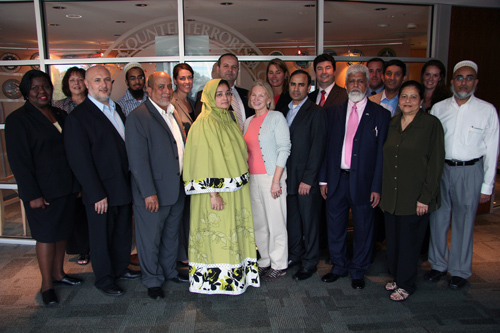The most important passage in President Obama’s “end of war” speech declares that there are no longer “surrender ceremonies”, which he seems to interpret to mean that there are no longer “celebrations of victories.” Victory, he suggests, consists in the internal strength of the U. S. and its partners. Tacitly, this internal strength is supposed to operate persuasively to modify and mollify international tensions, rendering conflicts unnecessary. In short, war is not a solution, even when it is a necessity, as he declares it to be in Afghanistan. Thus, we labor to “disrupt, dismantle, and defeat” Al Qaeda, which threatens the U. S. But victory in Afghanistan can only consist in “a political resolution to Afghanistan’s problems” by Afghans.

Is there an Obama doctrine? Implicitly, wars are unjustified as conquest and limited as self-defense. To state it differently, the conquest of a sovereign state is not a means to the defense of U. S. national security, even when it is necessary to wage war against a sovereign state in order to remove bad actors who threaten the U. S. In Iraq, we “defeated a regime that had terrorized its people” – not a state. The President’s parsing seems to be narrowing the concept that sovereign states must be held responsible for the nefarious activities that project from their jurisdictions, which was always a prudent rule seeking to impose control of terrorism through the instrumentalities of the sovereigns that shelter it rather than to commit the U. S. to endless “needles in the haystacks” efforts to protect itself. The Obama doctrine is a preference for the needle search, for he cannot accept that the innocent must fall with the guilty as a reality of international relations.
The speech has other characteristics less illustrative of statesmanlike deliberation. The President is simply not a naturally gracious man. Thus, rather than focusing the country on a clear vision of the future that lies ahead, he dwelt unnecessarily on the controversies, pains, sacrifices, and errors of the seven plus years of war in Iraq. The attempt to introduce graciousness, by merely declaring the fact of a conversation with former President Bush, did not rise to a simple acknowledgment, mistakes aside, the U. S. at length got it right and did what was necessary. The reason seems to be that to do so would lend some, even if slight, credibility to the view the Obama doctrine rejects.
Moreover, his reflecting on his campaign promise inserted his propria persona in the space that ought to have been occupied by collective hopes. This is revelatory. For it is also true that the milestone he marked was not a milestone for Iraq but only for the U. S. The troop withdrawal denotes no particular evolution in the situation in Iraq as of this date, whereas a well conducted election six months ago largely under the protection of indigenous security constituted a genuine milestone for Iraq. The President seems to read milestones relative to himself rather than relative to the larger moments of political existence.
This perhaps explains why a listener often ends an Obama speech feeling somewhat pinch-souled – nervous and anxious rather than confident about the future.
COMMENTS
Please let us know if you're having issues with commenting.